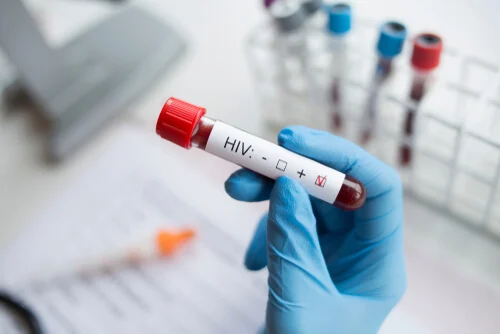
HIV, or the human immunodeficiency virus, is a virus that infects the body’s immune system, specifically targeting CD4 cells (T-cells) which help fight infections. Over time, if untreated, HIV significantly weakens a person’s ability to ward off other infections and diseases. AIDS (acquired immunodeficiency syndrome) is the advanced stage of HIV infection.
Understanding HIV Transmission
HIV is a sexually transmitted infection (STI) that spreads primarily through:
- Unprotected sex: Anal, vaginal, or oral sex without the consistent and correct use of condoms.
- Sharing needles: Intravenous drug use with infected needles.
- Mother-to-child transmission: During pregnancy, delivery, or breastfeeding.
- Less frequently: Contact with infected blood (e.g., blood transfusions – extremely rare nowadays due to careful blood screening).
Important Note: HIV is not transmitted through casual contact like hugging, shaking hands, sharing toilets, or through saliva.
Signs and Symptoms of HIV
HIV infection has several stages, each with a varying set of symptoms:
- Stage 1: Acute HIV Infection
- Occurs 2-4 weeks after infection.
- Symptoms are often flu-like and can include:
- Fever
- Chills
- Fatigue
- Muscle aches
- Sore throat
- Rash
- Night sweats
- Swollen lymph nodes
- Many people mistake these symptoms for a common cold or flu and may not realize they have HIV.
- Stage 2: Clinical Latency (Chronic HIV Infection)
- This stage can last for years, sometimes decades.
- During this period, HIV is still active but reproduces at low levels.
- Many people do not experience any symptoms during this stage, increasing the risk of unknowingly transmitting the virus.
- Stage 3: AIDS
- This is the most severe stage of HIV infection.
- The immune system becomes heavily damaged, making the body vulnerable to opportunistic infections and illnesses.
- Symptoms of AIDS can include:
- Rapid weight loss
- Recurring fever and night sweats
- Extreme fatigue
- Prolonged swelling of the lymph glands
- Diarrhea for over a week
- Sores in the mouth, anus, or genitals
- Pneumonia
- Blotches on or under the skin, inside the mouth, nose, or eyelids
- Memory loss, depression, and neurological disorders

The Importance of Testing
The only way to know for sure if you have HIV is to get tested. Regular testing for sexually active individuals is crucial for early diagnosis and timely treatment. Testing is recommended at least once per year, more often if your sexual activities put you at increased risk.
HIV Treatment
While there’s no cure for HIV, there are highly effective treatment options called antiretroviral therapy (ART). ART involves taking a combination of medications daily to suppress the virus and reduce its levels in the body. Properly followed ART has shown remarkable success in:
- Significantly reducing viral load to undetectable levels.
- Improving overall health and quality of life.
- Prolonging lifespan.
- Greatly reducing the risk of transmitting HIV to others.
Prevention
Knowing how to protect yourself and others is paramount in reducing the spread of HIV:

- Practicing safe sex: Consistent and correct use of condoms is highly effective in preventing HIV transmission.
- Pre-exposure prophylaxis (PrEP): This daily medication offers highly effective protection against HIV transmission, especially for individuals at increased risk.
- Post-exposure prophylaxis (PEP): This medication must be started within 72 hours of possible HIV exposure to potentially reduce the risk of infection.
- Avoid sharing needles.
- Get tested regularly: For yourself and sexual partners.
Dispelling Myths and Stigma
Misinformation and stigma surrounding HIV can be just as harmful as the virus itself. Here are a few misconceptions to combat:
- HIV is no longer a serious health threat: Although treatments have advanced greatly, HIV remains a serious infection requiring long-term management.
- HIV only affects certain groups: Anyone can contract HIV, regardless of sexual orientation, gender, race, or social background.
Let’s work together to reduce stigma, spread accurate information, and promote prevention and testing!
If you’d like more information about HIV, please consult reliable sources, such as:
- CDC (Centers for Disease Control and Prevention): https://www.cdc.gov/hiv/
- HIV.gov: https://www.hiv.gov/
- Planned Parenthood: https://www.plannedparenthood.org/